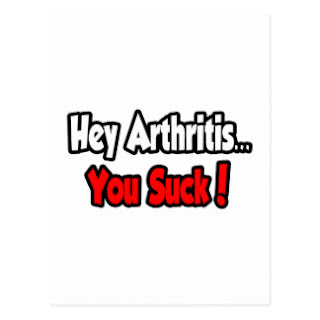a walk in our shoes
08 march 2014
What is Fibromyalgia? I could go on and on, explaining to you the clinical definition of this awful chronic pain condition that we live with on a daily basis, but in truth, that won't help you understand what it is like to actually live with the condition.
Suddenly, we wake up one morning, and something doesn't seem right. We feel different, stepping out of bed is suddenlyextremely difficult due to the stiffness we're feeling all over our bodies. It almost feels like you've come down with a case of the flu, your whole entire body aches. If it seems like the flu, maybe that's what it is, so you wait a few weeks, perhaps visiting your doctor to get an antibiotic. But the pain doesn't disappear.
So if it isn't the flu, what is it? You see doctors, who end up referring you to an terrific amount of specialists, who in turn run a battery of highly specialized tests to try and pinpoint what in the world is suddenly going on in your body. You sit down at your kitchen table and begin to wonder if you did something to deserve this horrific pain.
It's then that you realize you can't remember where the last place you put down your car keys. Frantically, you search for them. Are they in your purse? No. Pockets? Not there either. Let's check the couch cushions. You find twenty-five cents, but no keys. It's at this moment that you wish you had one of those fancy key-finder gadgets. Resolving to look for them later, you head into the kitchen to start cooking dinner. Opening the fridge to gather the ingredients for supper, it's there that you see your car keys, in the bottom crisper drawer next to the bag of salad you picked up from the grocery store earlier. Only thing is, you don'tremember putting your car keys there. An experience you find weird, but chalk it up to being tired, because you haven't had a decent night's sleep in months because the pain is entirely too excruciating to get even the least bit comfortable in your bed. But as each day passes, these "foggy moments" intensify, happening more and more often. You begin to think that you are losing it.
Another day, another doctor's appointment. You wait for over an hour in the waiting room, the chairs feeling hard and highly uncomfortable, only making your pain worse. Finally, the doctor is ready to see you. As he enters the examination room, he shakes your hand, introducing himself to you. He sure seems nice enough. Opening your chart, he says that he's went over what your file says, and the next words that come out of his mouth shock you. "I really think that the pain you are experiencing is due to mental anguish. You should see a psychiatrist, perhaps start an anti-depressant." You realize he has just told you that your pain is essentially all in your mind. After leaving his office, you slide into the driver's seat of your car and let loose. You cry, and cry, and cry. You ask yourself "What did I do to deserve this pain? Did I do something bad?" You end up questioning your sanity, your faith, yourself.
This process with seeing doctor after doctor after doctor goes on for years, with countless visits to the emergency room in between because you simply cannot get the pain under control. There are days where you get physically sick because the pain is so bad. Plans with friends and family members have had to take a backseat, because you simply cannot garner the energy to do them. Even taking a shower is too much for us some days. If you do manage to go out, or even stay in and clean the house for that matter, you pay for it for days. Sometimes, you are even laid up in bed, not able to move. Friends tell you that you just need to "think positive," or "get out more," not knowing that their remarks hurt you. Our families become critical of us. On that rare occasion, you have a good day. But you know that you cannot overdo it, because if you do, you will not have energy reserves left for the rest of the week. You know that you have to store that energy if you want to get at least a little bit of what needs doing.
Eventually, you make your way to a new doctor. They examine you, but every touch sends you reeling, the pain is so intense. Afterwards, they doctor asks you to follow him to his office. The doctor looks you in the eyes and says a strange word that you've never heard before. "You have Fibromyalgia Syndrome." They explain that it is a chronic pain disorder where the muscles and soft tissues of the body are in constant pain. Along with the pain, cognitive impairment, sleep disturbances and stiffness are common symptoms. You burst into tears, not only because of the diagnosis, but you cry at the relief of knowing what is wrong. You knew your body, and you knew that there was something wrong. You knew that you were in pain. Asking the doctor if there is anything that can be done, he looks at you and shakes his head, telling you that you will likely live with it for the rest of your life. The best anyone can do right now is to manage the symptoms and control the pain. He recommends some medications and writes out the prescriptions. He recommends that you get a handicap placard to use when you go out. You thank him profusely and leave, dropping the prescriptions off at the pharmacy on your way home. But as you soon find out, your body has become sensitive to everything. Scents, sounds, light, and even medications.
Realizing that some heavy decisions have to be made, you wonder what will happen to your job. If you leave your job, how will you support your family? If you're a student, how will you go to school? The anxiety from these questions alone are enough to scare you. You realize that your life will never be the same. "How am I going to do this?" you ask yourself. You try to go to the grocery store, parking in a handicap spot. Suddenly, you catch a glimpse of an elderly couple out of the corner of your eye, looking directly at you, shaking their heads in unison, showing their disdain.
You see, our illness is one that is not visible from the outside. You cannot see our pain. There are no outwardly signs that there is anything wrong with us. This alone brings a whole host of problems. Many people who do not understand will tell us that we don't "look sick." They will tell us that we are just "lazy," or that we are just "pretending" to get out of working. We hide behind our smiles, we work hard to hide the pain we are in. But these comments hurt, more than anything. Because, I can tell you, we want to work more than anything. We want to go to school more than anything. We want our old lives back.
Before this illness struck us down, we were just like you.
But you know what the most important thing to remember is?
We are still human. We don't want your pity, we don't want to be treated differently. We want your compassion and encouragement. But most of all? We want your understanding.
We are still human. We don't want your pity, we don't want to be treated differently. We want your compassion and encouragement. But most of all? We want your understanding.



Comments
Post a Comment